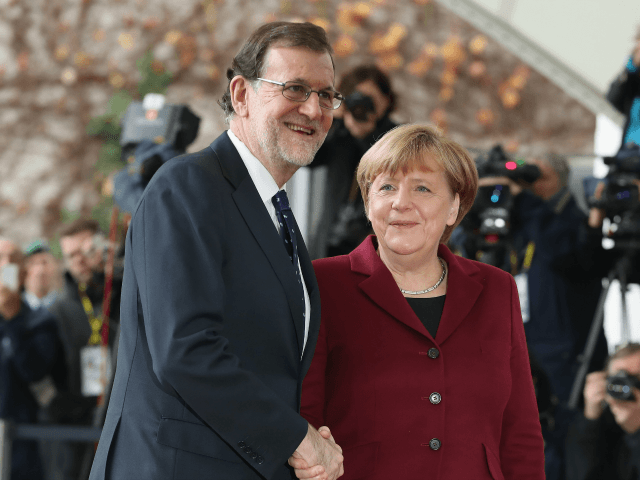Spain’s recently re-elected Prime Minister Mariano Rajoy has vowed to fight the growing tide of populism across Europe, calling on European leaders do as much as possible to improve their economies and increase employment, but saying little about immigration.
Speaking in an interview with the Wall Street Journal, the veteran conservative leader said the only way to tackle populism was through economic growth.
“The most important objective across Europe is to achieve economic growth and employment,” he said.
Mr Rajoy has gained a reputation as the “great survivor” of Spanish and European politics, having led the conservative People’s Party since 2004, when it suffered a shock election defeat after the Madrid train bombings.
He then led it to a further election defeat in 2008, yet managed to hold on as leader. Spain’s economy soon collapsed in the global financial crisis, destroying the credibility of the governing Socialists and propelling Mr Rajoy into office in 2011.
Speaking on the same day that Italian Prime Minister Matteo Renzi resigned after his crushing referendum defeat – and before the appointment of his successor Paolo Gentiloni – Mr Rajoy said there was new uncertainty in the European Union (EU).
“The Italian mess is incredible,” Mr. Rajoy said. “We don’t know who is going to be there, if there’s going to be an election, what law they’ll apply.”
However, he claimed that populism will wane in 2017, with movements failing to win power in France and Germany.
The movements, he said, are “very much of the moment.”
“They rise at a certain moment and can disappear.”
“If traditional political parties defend themselves with the same energy and good arguments as opponents of the system do, then things will stabilize,” he added.
Spain has witnessed a populist uprising of its own in the form of the far-left Podemos party, which has taken much support from the establishment Socialists, but has so far failed to win power.
The rise of upstart parties led to two inconclusive elections in December last year and June this year, with Mr Rajoy only winning enough parliamentary support to retake office in October.
Omitting to mention the huge the migrant crisis that has gripped Europe for the past two years, Mr Rajoy said that the old parties across the continent simply had to explain the positive aspects of European integration.
“It’s good to explain what positive things the big European parties have done,” he said.
On the subject of U.S. President-Elect Donald Trump, he struck a cautionary note saying he “has to be judged for what he does” in office.
He was more conciliatory about Brexit, saying “Let’s not harm one another,” although he added the UK could not “cherry pick” the parts of EU membership it likes, such as maintaining single market access while limiting free movement.

COMMENTS
Please let us know if you're having issues with commenting.